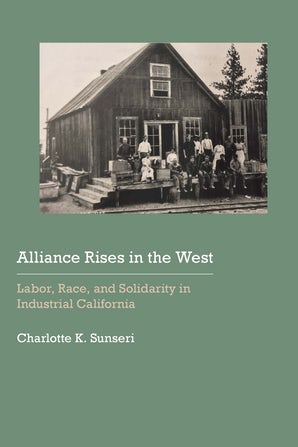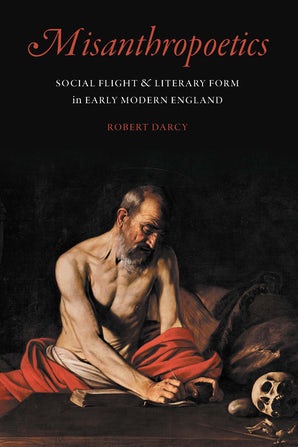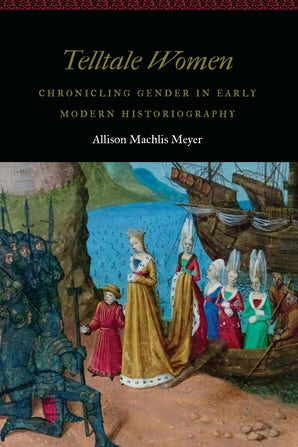The Nebraska Publications Clearinghouse receives documents every month from all Nebraska state agencies, including the University of Nebraska Press (UNP). Each month we will be showcasing the UNP books that the Clearinghouse receives. UNP books, as well as all Nebraska state documents, are available for checkout by libraries and librarians for their patrons.
Here are the UNP books the Clearinghouse received in January and February 2021:
Alliance Rises in the West : Labor, Race, and Solidarity in Industrial California by Charlotte K. Sunseri. (Series: Historical Archaeology of the American West)
Alliance Rises in the West documents the experiences of a company town at a critical moment in the rise of working-class consciousness in nineteenth-century California. Through archaeological research Charlotte K. Sunseri overcomes the silence of the documentary record to re-examine the mining frontier at Mono Mills, a community of multiple ethnic and racial groups, predominantly Chinese immigrants and Kudzadika Paiutes. The rise of political, economic, and social alliances among workers symbolized solidarity and provided opportunity to effect change in this setting of unequal power. Urban planning and neighborhood layout depict company structures of control and surveillance, while household archaeology from ethnically distinct neighborhoods speaks to lived experiences and how working-class identities emerged to crosscut ethnic and racial divides imposed in capitalism.
Mono Mills’s Paiute and Chinese communities experienced exclusionary legislation and brutal treatment on the basis of racial prejudice but lived alongside and built community with European American laborers, managers, and merchants who were also on an economic periphery. These experiences in Mono Mills and other nineteenth-century company towns did not occur in a vacuum; capitalists’ control and ideologies of race and class all doubled down as American workers used collective action to change the rules of the system. In this rare, in-depth perspective, close consideration of the ghost towns that dot the landscape of the West shows the haunting elements of capitalism and racial structures that characterized Gilded Age society and whose legacies endure to this day.
Hybrid Anxieties : Queering the French-Algerian War and Its Postcolonial Legacies by C. L. Quinan.(Series: Expanding Frontiers: Interdisciplinary Approaches to Studies of Women, Gender, and Sexuality)
Situated at the crossroads of queer theory and postcolonial studies, Hybrid Anxieties analyzes the intertwined and composite aspects of identities and textual forms in the wake of the French-Algerian War (1954–1962). C. L. Quinan argues that the war precipitated a dynamic in which a contestation of hegemonic masculinity occurred alongside a production of queer modes of subjectivity, embodiment, and memory that subvert norms. Innovations in literature and cinema were also directly impacted by the long and difficult process of decolonization, as the war provoked a rethinking of politics and aesthetics. The novels, films, and poetry analyzed in Hybrid Anxieties trace this imbrication of content and form, demonstrating how a postwar fracturing had both salutary and injurious effects, not only on bodies and psyches but also on artistic forms.
Adopting a queer postcolonial perspective, Hybrid Anxieties adds a new impulse to the question of how to rethink hegemonic notions of gender, sexuality, and nationality, thereby opening up new spaces for considering the redemptive and productive possibilities of negotiating life in a postcolonial context. Without losing sight of the trauma of this particularly violent chapter in history, Hybrid Anxieties proposes a new kind of hybridity that, however anxious and anticipatory, emphasizes the productive forces of a queer desire to deconstruct teleological relationships between past, present, and future.
Misanthropoetics : Social Flight and Literary Form in Early Modern England by Robert Darcy.
Misanthropoetics explores efforts by Renaissance writers to represent social flight and withdrawal as a fictional escape from the incongruous demands of culture. Through the invented term of its title, this book investigates the literary misanthrope in a number of key examples from Shakespeare, Jonson, Spenser, and the satirical milieu of Marston to exemplify the seemingly unresolvable paradoxes of social life.
In Shakespeare’s England a burgeoning urban population and the codification of social controls drove a new imaginary of revolt and flight in the figure of the literary misanthrope. This figure of disillusionment became an experiment in protesting absurd social demands, pitting friendship and family against prudent economies, testimonies of durable love against erosions of historical time, and stable categories of gender against the breakdown and promiscuity of language.
Misanthropoetics chronicles the period’s own excoriating critique of the illusion of resolution fostered within a social world beleaguered by myriad pressures and demands. This study interrogates form as a means not toward order but toward the impasse of irresolution, to detecting and declaring the social function of life as inherently incongruous. Robert Darcy applies questions of phenomenology and psychoanalysis, deconstruction and chaos theory to observe how the great deployers of literary form lost confidence that it could adhere to clear and stable rules of engagement, even as they tried desperately to shape and preserve it.
Telltale Women : Chronicling Gender in Early Modern Historiography by Allison Machlis Meyer. (Series: Women and Gender in the Early Modern World)
Telltale Women fundamentally reimagines the relationship between the history play and its source material as an intertextual one, presenting evidence for a new narrative about how—and why—these genres disparately chronicle the histories of royal women. Allison Machlis Meyer challenges established perceptions of source study, historiography, and the staging of gender politics in well-known drama by arguing that chronicles and political histories frequently value women’s political interventions and use narrative techniques to invest their voices with authority. Dramatists who used these sources for their history plays thus encountered a historical record that offered surprisingly ample precedents for depicting women’s perspectives and political influence as legitimate, and writers for the commercial theater grappled with such precedents by reshaping source material to create stage representations of royal women that condemned queenship and female power.
By tracing how the sanctioning of women’s political participation changes from the narrative page to the dramatic stage, Meyer demonstrates that gender politics in both canonical and noncanonical history plays emerge from playwrights’ intertextual engagements with a rich alternative view of women in the narrative historiography of the sixteenth and seventeenth centuries.






